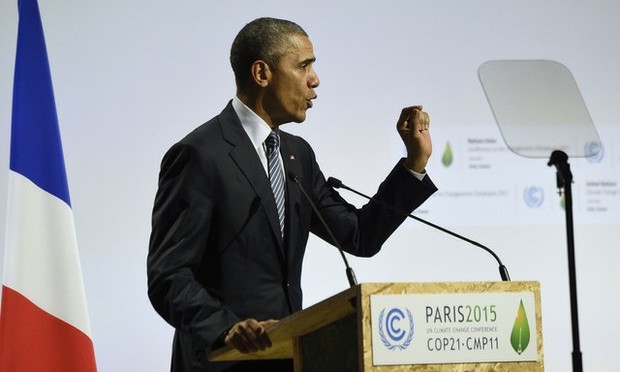In a move not wholly unexpected of the U.S., select countries received a note detailing American expectations from the Paris agreement at COP21. The confidential note, circulated days ahead of the start of the major conference in Paris, irked climate activists as well as developing nations for stating that successive rounds of climate pledges be determined independently by each country and not through a process of international negotiation.
In essence, the U.S. has asked that differentiation be shelved and that developed countries not bear the burden of historical responsibility. For countries like India, who have traditionally argued for the principle of Common But Differentiated Responsibilities (CBDR), this document has sparked much discussion at the ongoing talks by bringing in a term that many Non-Annex 1 (developing) countries are not particularly fond of: climate neutrality. Climate neutrality ignores the historical burden of the accumulated emissions of developed countries while allowing countries to continue emitting some levels of carbon emissions in their domestic economies as long as they can offset these by taking action in other areas.
In what many see as a bid to evade responsibility on emission targets, the document reads, “What is expected from countries should be differentiated to capture their varying circumstances and capabilities today and in the future, not based on outdated categories (‘Annex 1/non-Annex 1’ or ‘developed/developing’) created in 1992.” Using the leverage of the INDCs (Intended Nationally Determined Contributions), an approach introduced for this round of climate negotiation, the document highlights a bottom-up approach with more power resting with individual national climate action plans.
The note casts a shadow over the talks at a time when dozens of international collaborations and multi-lateral partnerships are being announced. Such backchannel negotiation tactics threaten to strain existing bilateral and multilateral relations while turning back the spotlight on a tussle as old as the climate talks themselves: the debate over whether an international mechanism should periodically review every country’s progress or whether it should be the prerogative of the country itself. While India supports some degree of autonomy in the process, it is unwilling to ignore the role of historical emissions.
Pursuing new terms for the treaty and positioning itself as a climate maverick, the U.S. might be biting off more than it can chew. However, in a more hopeful development, President Barack Obama also conceded that some parts of the Paris agreement may be legally binding such as transparent monitoring and reporting of the progress on targets. While it remains to be seen exactly how this confidential note will impact COP21’s outcome, one thing is clear: we cannot afford to let Paris be another Copenhagen.

